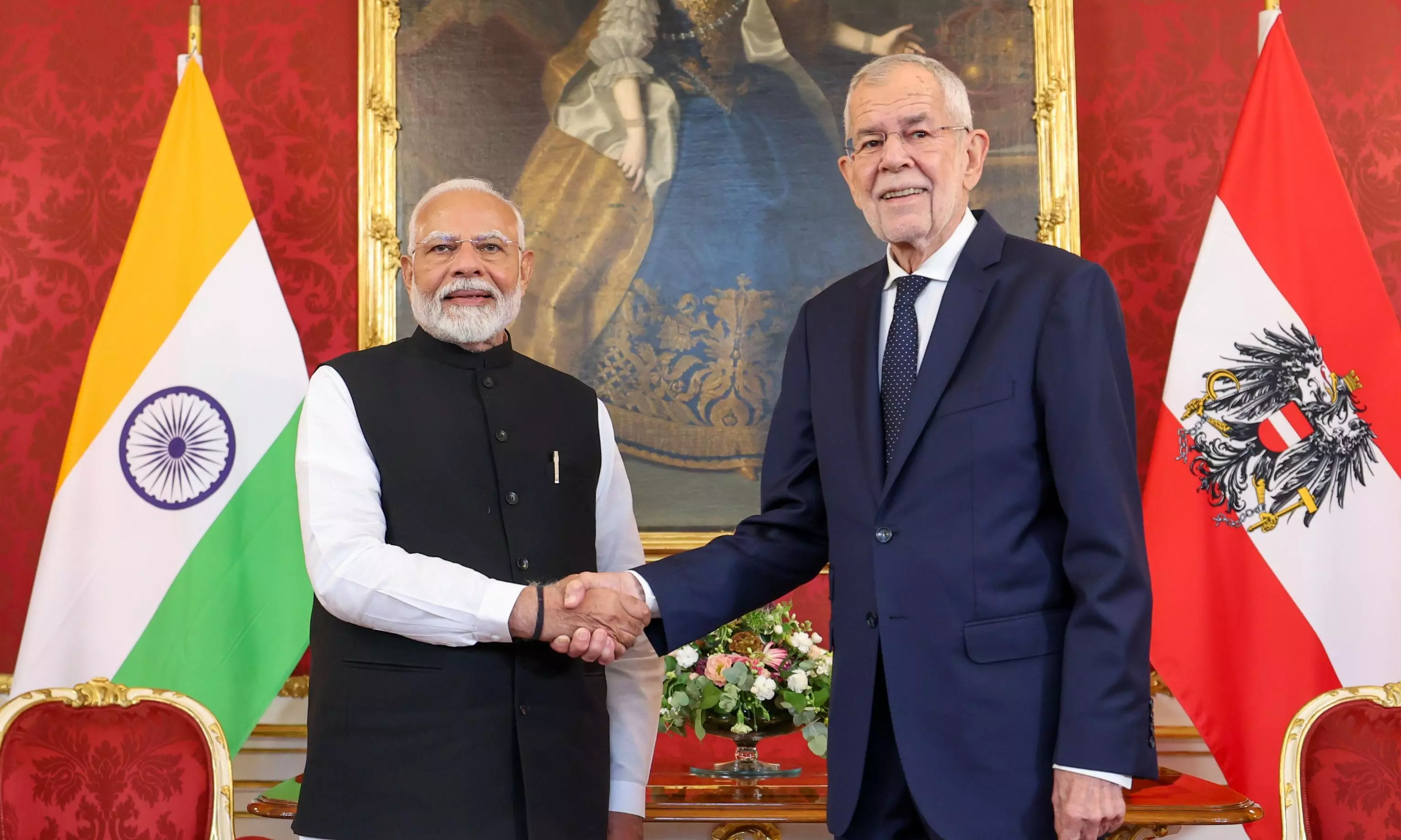Modi: India, Austria Ties will Get Stronger

New Delhi: Prime Minister Narendra Modi and Austrian Chancellor Karl Nehammer discussed bilateral ties and global issues like Russia-Ukraine and Middle East conflicts during talks on Wednesday. Following their discussions, Modi announced that India and Austria have “decided to provide strategic direction” to their relationship, unveiling a “blueprint for cooperation over the coming decades.”
Key areas of collaboration include infrastructure development, innovation, renewable energy, hydrogen, water and waste management, artificial intelligence, and quantum technology.
He emphasised the importance of accelerating the “Start-up bridge” to connect the youth and ideas of both nations.
Modi reiterated the stance that “this is not a time for war” and stressed the necessity of solving problems through dialogue and diplomacy.
Austrian Chancellor Nehammer emphasised the importance of hearing Modi’s perspective on Russia’s intentions towards peace, particularly in light of PM’s recent visit to Moscow.
Chancellor Nehammer also highlighted Austria’s readiness to act as a mediator in the Russia-Ukraine conflict, emphasising the need for a "comprehensive, just, and permanent peace in line with the UN Charter.”
During a media briefing, foreign secretary Vinay Mohan Kwatra mentioned that Modi discussed the challenges India faces with cross-border terrorism emanating from Pakistan and the ongoing India-European Union (EU) Free Trade Agreement (FTA) negotiations. The talks also covered enhancing economic ties, with a joint statement noting the potential for a significant upgrade in the bilateral partnership.
Both leaders agreed on adopting a strategic approach to advance shared objectives, including a sustainable economic and technology partnership. Collaborative efforts will focus on green and digital technologies, infrastructure, renewable energy, water management, life sciences, smart cities, and transportation.
On the Ukraine conflict, the Joint Statement expressed support for collective efforts to achieve a peaceful resolution consistent with international law and the UN Charter. The leaders believe that lasting peace in Ukraine requires sincere engagement between all stakeholders. Chancellor Nehammer praised India's role as a major democracy and influential country in the Global South, recalling India's first Prime Minister Jawaharlal Nehru’s contributions to the Austrian State Treaty in 1955. Highlighting economic ties, Nehammer noted that bilateral trade stands at 2.7 billion Euros, with discussions focusing on urban infrastructure, research, innovation, and investment. Modi underscored the shared values of democracy and the rule of law as the foundation of the India-Austria relationship. He mentioned new opportunities to strengthen cooperation and highlighted agreements on mobility and migration partnerships, facilitating legal migration and the movement of a skilled workforce. Modi invited Chancellor Nehammer to visit India, an invitation that was accepted. In closing remarks, Modi and Chancellor Nehammer addressed a group of leading Austrian and Indian CEOs from various sectors. They encouraged business representatives to explore dynamic tie-ups across different fields, emphasising the importance of research, scientific tie-ups, technology partnerships, and innovation in driving forward the bilateral partnership. Both leaders reaffirmed their support for the ongoing India-EU trade and investment negotiations and emphasized the need for concerted action against terrorism, including cross-border and cyber-terrorism. This visit marks the first by an Indian Prime Minister to Austria in 41 years, underscoring the renewed commitment to deepening bilateral ties and fostering cooperation on multiple fronts.

